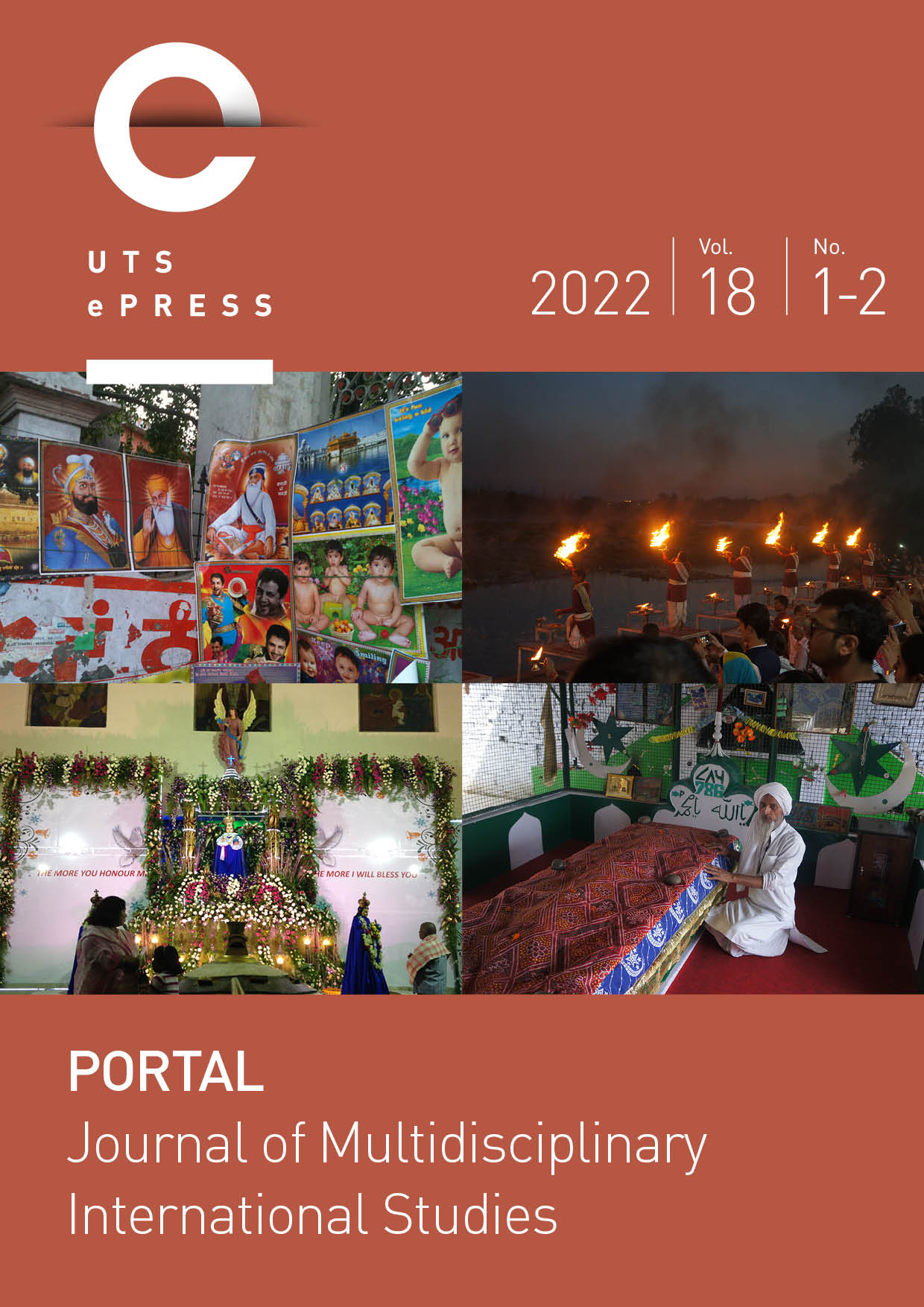Kampong French A Tale of Doubtful Authenticity
Main Article Content
Abstract
Abstract: This paper refers to accounts of previous journeys on the ‘laksa trail’ in search of Peranakan cuisine and its sensory nuances. These journeys have produced narratives of migration and diaspora, shaped by the re-location of dishes and ingredients from local villages, coffee houses and home kitchens of Malaysia and Singapore to cafés and restaurants of Adelaide, Australia and Toronto, Canada. On this occasion, however, the argument comes full circle, focusing on nostalgic tastes, smells and textures that resonate in Singapore itself. The intention is to trouble meanings of authenticity in terms of specific communities’ dishes, ingredients and culinary rituals, and to frame the argument through the rich body of scholarship emerging since Fernando Ortiz’s seminal discussion of transculturation in Cuban Counterpoint (1995). Kampong French, established in the lush gardens of Singapore’s Open Farm Community, provides a ‘pop-up’ example of transculturation within a specific culinary contact zone (Pratt 1996; Farrer 2015)—a sense of the plasticity of dishes, ingredients and meanings. It may be tempting to dismiss these re-inventions of traditional dishes and ingredients as opportunistic seizure of the ‘exotic’ or simply as expressions of creative entrepreneurialism, or even as ‘inauthentic’ adventuring on behalf of the palates of privileged middle-class consumers. Unravelling the political implications of these experiments in nomadism, however, suggests there is more to learn about meanings of authenticity in historically ‘mixed’ communities—about authenticity’s less obvious refractions of movement, ethnicity, identity and place and, in particular, about the complex ways these meanings are ingested in twenty-first century multi-culinary global cities.
Article Details
Section
For submissions from 31st March 2014 onwards, authors who submit articles to this journal for publication agree to the following terms:
a) Retaining Copyright and Granting Rights:
Authors retain copyright and grant the journal the right of first publication. The work is simultaneously licensed under a Creative Commons Attribution License, allowing others to share and adapt the work. Acknowledgment of the work's authorship and initial publication in this journal is required.
b) Non-Exclusive Distribution:
Authors may enter into separate, additional contractual arrangements for the non-exclusive distribution of the journal's published version of the work (e.g., posting to an institutional repository or publishing in a book). Acknowledgment of its initial publication in this journal is required.
c) Online Posting and Citation Advantage:
Authors are encouraged to post their work online (e.g., in institutional repositories or on their website) prior to and during the submission process. This may lead to productive exchanges and earlier and greater citation of the published work (See The Open Access Citation Advantage Service). If authors include the work in an institutional repository or on their website, they must acknowledge the UTS ePRESS publication with relevant details.
d) Creative Commons Attribution (CC-BY) License Awareness:
Authors should note that the CC-BY License permits readers to share (copy and redistribute) and adapt (remix, transform, build upon) the work for any purpose, including commercial use. Proper credit, a link to the license, and indication of any changes made must be provided. The manner of doing so must not suggest endorsement by you or your publisher.
For Volume 10 No 2 (2013) and earlier, the following copyright applied:
Authors submitting a paper to UTSePress publications agree to assign a limited license to UTSePress if and when the manuscript is accepted for publication. This license allows UTSePress to publish the manuscript in a specific issue.
Articles published by UTSePress are protected by copyright, with rights retained by the authors, who assert their moral rights. Authors control translation and reproduction rights to their works published by UTSePress. All rights are reserved worldwide by UTSePress, and downloads of specific portions are permitted for personal use only, not commercial use or resale.
For reprint or usage permissions, please direct inquiries to UTSePress via the journal's main editor, Dr. Nicholas Manganas at [portal.scholarly.journal@gmail.com]. Reprint permission requires acknowledgment of both UTSePress and PORTAL in the format advised by the journal editor.
